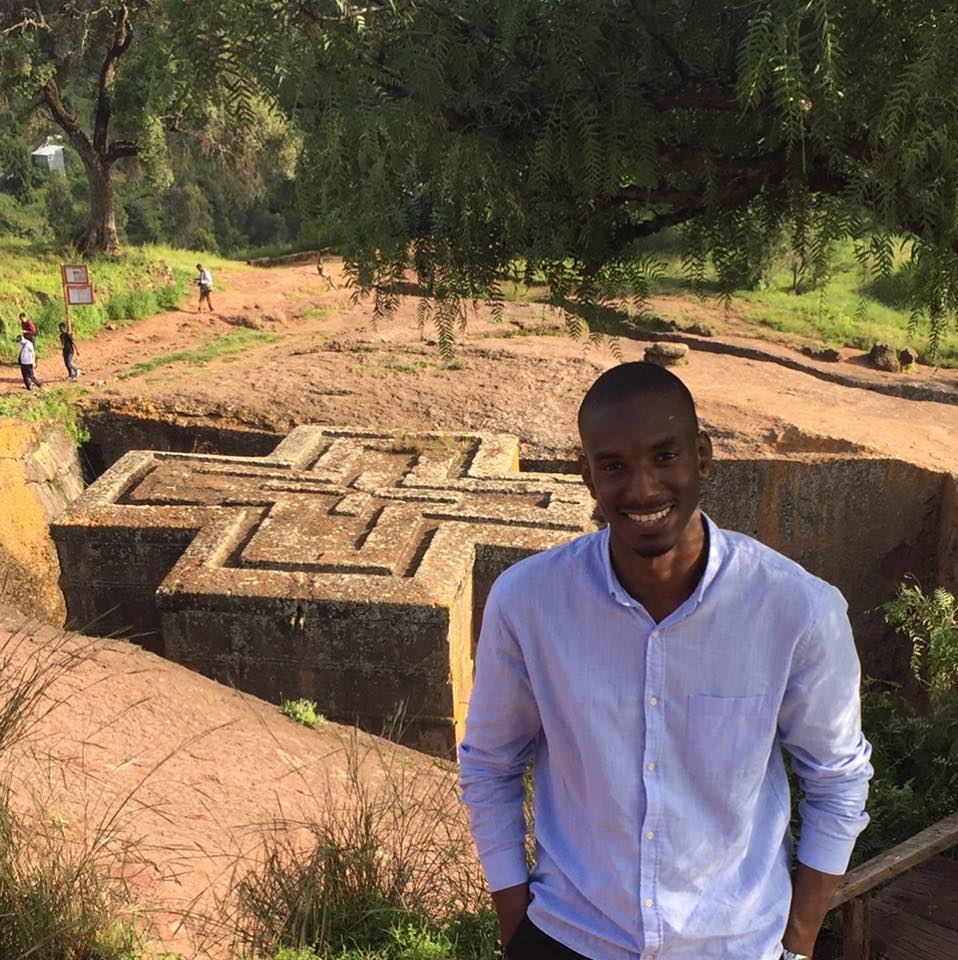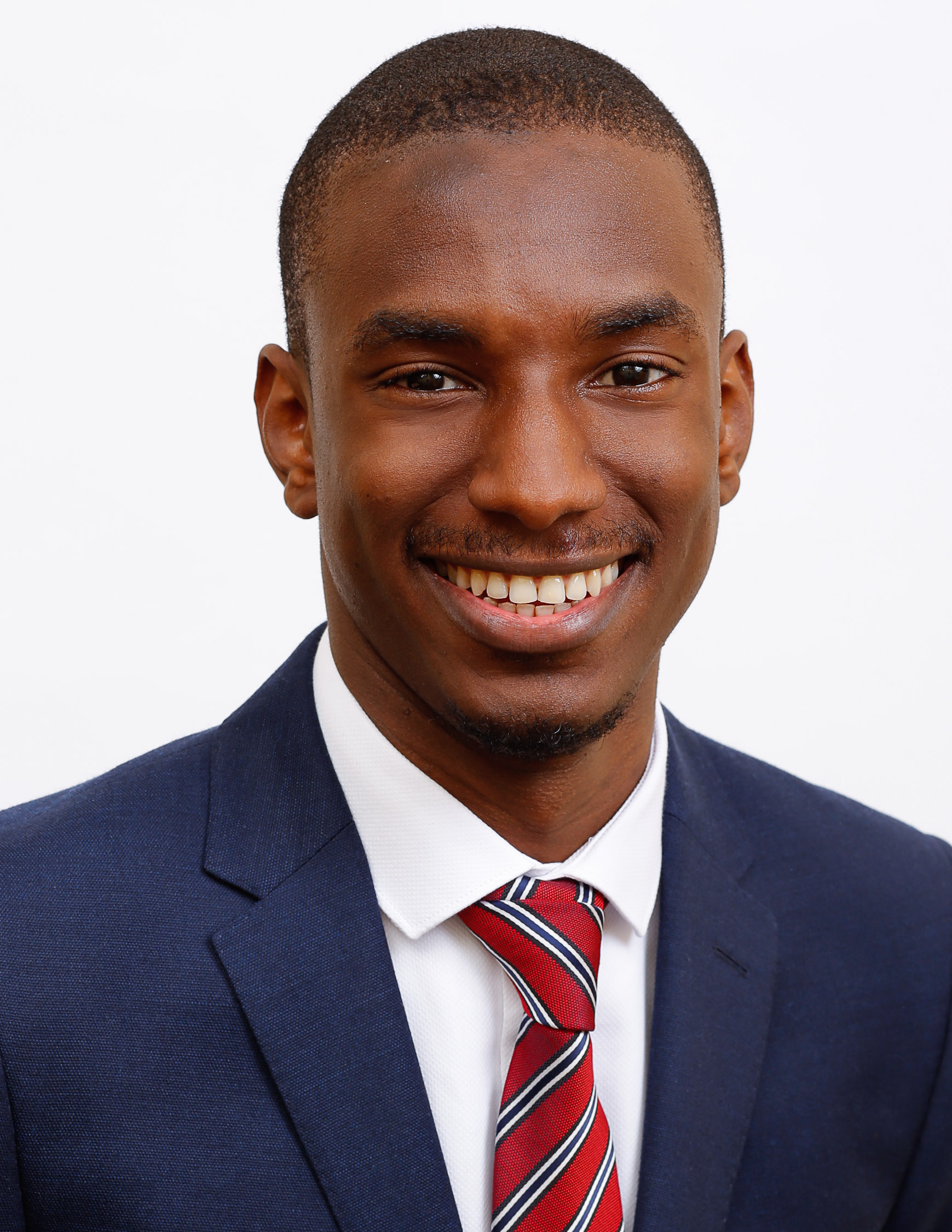
Papa Momodou Jack's research will focus on access to healthcare in Ethiopia.
Often policy makers overlook more traditional medicine and how people use it. I called for greater recognition of the prevalence and role of traditional medicine and how Africans choose to heal themselves.
Papa Momodou Jack
Papa Momodou Jack wants to change how development is practised in the sphere of public health by bridging the divide between scholarship and policy and shaping interventions that acknowledge the different social, cultural, political and economic contexts in which it takes place.
As part of his PhD in Geography, Momodou [2018] will look at access to healthcare in Ethiopia, focusing in particular on the Community-Based Health Insurance (CBHI) scheme which draws from a scheme in Ghana which he has previously studied.
He says: “I’m interested in how Ethiopia, which its diverse population, complex history of ethnic marginalisation and low-income status can succeed when the model has problems in Ghana.” His thesis will use a mixed methods approach to examine the role of ethnicity, gender and socioeconomic status in explaining differences in health outcomes under the CBHI scheme in Ethiopia. It will analyse regional variations in health outcomes in Ethiopia, examine the role of intergovernmental and nongovernmental organisations and traditional healers in filling the health provision gap for the most vulnerable and provide practical recommendations on improving current and future policies and programming.
It will also examine the extent to which the scheme can contribute to the attainment of the health-related target of the Sustainability Development Goal framework in Ethiopia.
One of Momodou's main interests is in how the voices of those affected by policies are integrated into the development process.
Momodou is the first Gates Cambridge Scholar from the Gambia and is determined to use the experience in a positive way to encourage others to study at the highest level and to contribute to the sustainable socio-economic development of their countries.
Lasting change
Born in Bakau, a fishing town on the coast of the Gambia, he is well aware of the complexity of different countries. His father worked for the UN so the family – Momodou has three older sisters – moved around a lot when he was young. His first four years were spent in the Gambia, then he lived in Botswana, Nigeria, Zimbabwe and Rwanda before going to boarding school in the UK and then returning to Kenya for his final years at school.
In Africa he attended international schools, some of which had children from over 50 nationalities in them. In addition to local community work, Momodou’s school in Kenya also had a Global Issues Network. He was a volunteer for the network and helped to raise money for the Somali refugee community. He also volunteered for Rotary International. For Momodou, though, voluntary work is not enough. He wants to contribute to lasting change and to ensure Africans have access to the best healthcare in the world. In this vein, Momodou is currently establishing a social enterprise that will support marginalised women in the Gambia, Nigeria and Ethiopia to sustainably produce and export high-quality superfoods, with profits being used to close existing health provision gaps.
Momodou opted to do his undergraduate degree in Human Geography at Newcastle University where his sister had studied and which had a very good Geography programme. In his second year, Momodou was the President of the university’s African Caribbean Society. One of the key events he helped coordinate was an afternoon of different scholars, writers and artists which aimed to challenge people’s assumptions and stereotypes about Africa.
While he was at university, he completed a six-week Corporate and Indirect Tax internship at PwC in the UK, and also spent one summer at KPMG in Botswana, working with the firm’s Management Consulting and Corporate Finance teams. In addition, he spent some time in Ghana researching his undergraduate dissertation on the country’s National Health Insurance Scheme and its impact on the most marginalised communities. The scheme is held up as an example of what health insurance should look like in Africa.
Momodou says: “I wanted to examine whether it was fit for purpose and to consider the role of other, more traditional providers of health. Often policy makers overlook more traditional medicine and how people use it. I spoke to NGOs, IGOs, health workers and traditional healers to put together a complete picture of health services. My dissertation called for greater recognition of the prevalence and role of traditional medicine and how Africans choose to heal themselves.”
His research found logistical problems with reimbursement from the health insurance body and issues around the quality of universal healthcare offered which meant that people did not trust the system as much as they might do.
Questioning assumptions
After his undergraduate degree Momodou worked for two years as an international development consultant for PwC in London on a flagship infrastructure programme funded by the Department for International Development. As a Senior Associate at the firm, Momodou provided technical assistance to senior advisers on a range of projects in fragile states. This included assessing the extent to which certain infrastructure investments in Somalia were providing value-for-money.
His work made him question the assumptions behind development policies and he decided he needed to take a step back to understand why development was done in the way it was. He applied to the University of Cambridge to do an MPhil and began in 2017. Through the course he has sought to question development policy using a post-colonial critique. “I wanted to have a theoretical understanding of development which is fundamental to asking questions about how it works and to see if we could do it differently in a way that integrated the voices of people. That is fundamentally the problem. Policies are imposed from one country to another and ignore the complexity of the local environment,” he says.

Papa Momodou Jack
- Alumni
- Gambia
- 2018 PhD Geography
- Churchill College
Momodou is a strategy consultant and international development specialist working across resilient infrastructure, green urban growth, and social policy. He received a Gates Cambridge Scholarship in 2018 to pursue a PhD in Geography, where he examined efforts to achieve universal health coverage in Ethiopia, focusing on how social positioning and street-level bureaucracy shape access and experience at the point of care, and how these everyday dynamics ultimately redefine what the policy becomes in practice. He also holds an MPhil in Development Studies from the University of Cambridge and a BA (Hons) in Geography from Newcastle University.
Previous Education
University of Cambridge MPhil in Development Studies 2018
Newcastle University BA (Honours) in Geography 2015
Links
https://www.synteraconsulting.com
https://www.linkedin.com/in/mjack-phd












